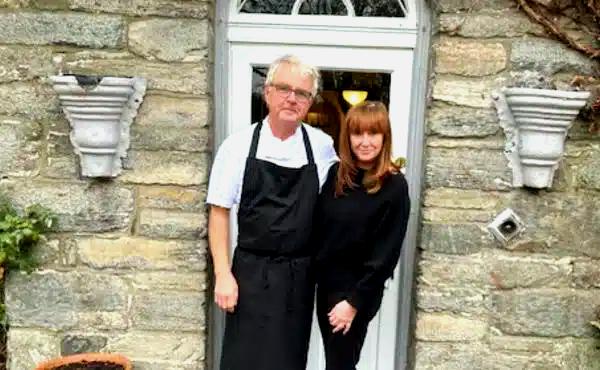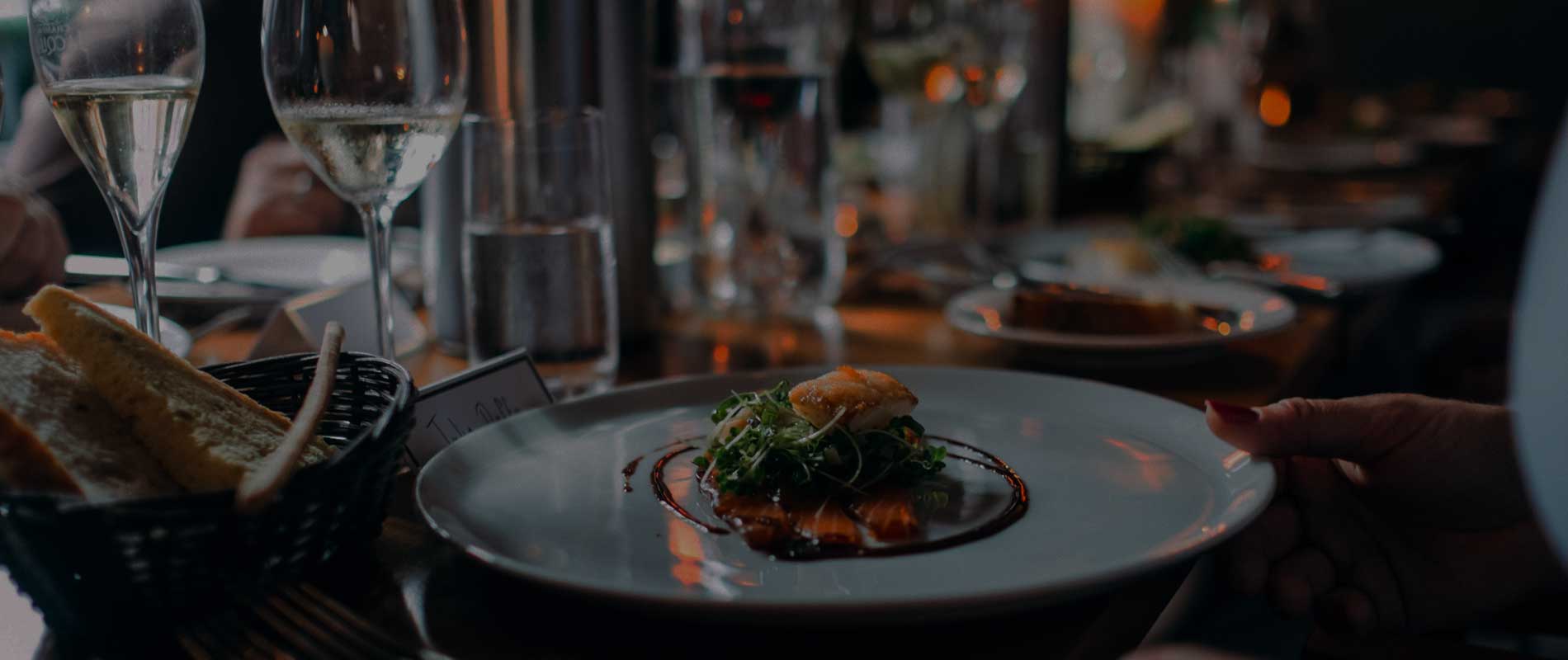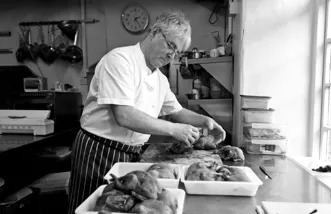
Bryan Webb and his wife Susan ran their final service at Tyddyn Llan, their restaurant with rooms in north Wales, on July 14. Harden’s caught up with Bryan as he and Susan were packing up their household, to hear some of his reflections on a remarkably fulfilling career that started in his native south Wales and included 14 years at Hilaire in South Kensington.
Harden’s: Congratulations Bryan on completing a fantastic innings as a chef. How many years have been working in kitchens?
Bryan: It’s 48 years now. I finished my O levels on the Friday and started working on the Saturday. My birthday’s in August, so I was 15 at the time – I had had the interview three months earlier, so was just waiting to finish school.
Any regrets along the way?
No, none at all. At first it was just a job. I was a trainee chef in the same way that my friends were trainee electricians or whatever. But within a few months I fell in love with cooking – you have to be in love with it to cope with the long hours.
The lady I went to work for all those years ago (Sonia Blech of The Crown in Whitebrook) is still a very close friend. Her husband, who sadly passed away a few years ago, became a father-figure to me after my own father died when I was 19, and helped me with my career as it progressed.
Tell us some of the stand-out moments of your career.
There have been many great moments – we’ve had a ball to be honest. But buying Hilaire at the age of 29 brought a real sense of achievement: owning my own restaurant in London.
There have also been the awards: receiving a Harden’s award at the Hyde Park Hotel, a Michelin star, restaurant of the year from other organisations.
I also remember my 50th birthday very well, which I cooked for. I’m a radio man and Johnny Walker was my hero, and he came along as a surprise guest.
But it’s always a roller-coaster in this industry, so I also remember going through difficult times like the 2008 crash and covid. And there was one Valentine’s night when we had installed a new fan and it short-circuited our electrics, so we had no power in the kitchen. Susan drove her car round to the window and we cooked the entire service by the light of her headlights!
Has your personal style of cooking changed over the years – and was it difficult to switch from Hilaire in London to Tyddyn Llan in the depths of the countryside?
I don’t think my style of cooking has changed that much over the years. By the time I reached the age of 30 I realised what I wanted to do, and stuck with it. Some dishes have stayed pretty much the same all the way through – such as the steak au poivre with butter sauce, which in fact came from Simon Hopkinson (who preceeded Bryan at Hilaire). It still sells well.
As for moving into the country – it’s just as difficult to cook there as it is in the city, although it can be harder to find staff.
But my cooking has remained pretty old school over the years. One thing I never skimp on is the quality of the ingredients. If customers are going out for a special meal, they should have turbot, not cod. A lobster starter should be a whole half lobster, not just a couple of slices. I remember Bruce Poole (of Chez Bruce) saying if I worked for him he’d go bankrupt!
But we’ve never had to make a gross profit of 70% or whatever – just enough to be able to live comfortably, which we have. Once you have got a good customer base, you can manage OK. We had 8,500 people on out mailing list at Tyddyn Llan, customers who were loyal to us, and that was wonderful.
Is it increasingly difficult to be an independent owner-operator these days?
Susan and I were thinking about this the other day – when we left Hilaire we were one of the last couples in London to own our own restaurant, and it is the same at Tyddyn Llan. Ynyshir is backed by a multi-millionaire, like the new owners at Tyddyn Llan. They have probably spent more on kitchen equipment in a fortnight than we spent in 22 years! But you probably have to now, everything’s totally different. Even cleaning equipment: if we needed a new dustpan, we just popped into the village shop.
Any advice to somebody coming into the industry today?
It’s changed a lot in some ways – there’s no screaming and shouting in kitchens any more. But you still need to be prepared to work extremely hard to make it. If you love food and you love the best ingredients, work with someone who can mentor you.
And don’t follow trends – trends come and go. But you need to understand what is happening. For instance, in the 1970s Michel Guérard’s nouvelle cuisine was an amazing idea – but it wasn’t just small portions on big plates, he was taking the heaviness out of food, so no flour in the sauces. We ate at his restaurant recently, and he’s still there in his whites, in his 90s.
In the 80s that changed again, and people were no longer ashamed of serving chips or mashed potato. Then in 90s someone like Phillip Howard [at The Square] was serving a starter of rocket and parmesan. So things do change.
Are there any current trends you would like to see the back of?
Well, I think there are too many tasting menus, and small plates can be annoying. I don’t like hearing a description of a dish I have already ordered, and I don’t need the menu to be “explained”. You go out to dinner to talk to your wife and friends, not to discuss the menu with the waiting staff.
Do you have plans for your retirement?
Yes, we’ve got some nice holidays lined up. America, then after Christmas a big trip to Thailand, where we’ll be cycling from Bangkok to Phuket. Then we’re off to Australia, where we have very good friends we haven’t seen for 22 years.
We’ll be living in Hawarden, a village on the Welsh border close to Chester – and close to the airport.


